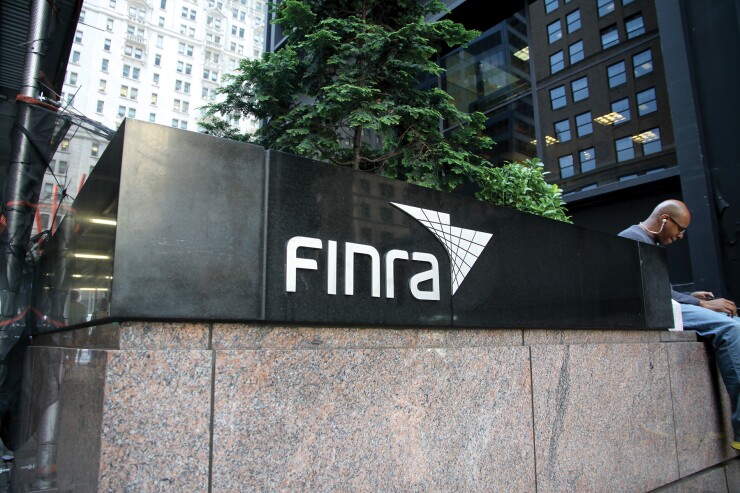
FINRA's process for reviewing requests to expunge disciplinary records heavily favors advisors and their firms, who seek to delete client complaints and other violations from their online BrokerCheck records, critics say.
READ MORE:
Many experts have ideas on how to improve the system.
FINRA released a report
Some of the self-regulator's harshest critics served on the task force. They are members of the Public Investors Arbitration Bar Association, which has offered its own proposals.
Recommendations made by the task force, arbitration bar association reports and securities lawyers, include the following:
- Don't make clients regulators. Stop forcing clients and their attorneys into the role of regulators tasked with maintaining accurate, publicly available records. Aggrieved clients should not be the only ones left to object when brokers attempt to delete client complaints from their records. "So long as aggrieved investors have to shoulder the burden of fighting expungement requests, the process cannot see a meaningful improvement," says Hugh Berkson, president of the Public Investors Arbitration Bar Association.
- Bring expungement in-house. Have FINRA attorneys review and investigate brokers' expungement requests, instead of leaving the decisions to arbitrators. In the current system, FINRA doesn’t learn of expungement requests until after the decisions are rendered. FINRA is considering taking this step, the regulator informed the task force members. If approved, it would render many of the task force recommendations moot.
- Fight inappropriate expungements. Make sure FINRA attorneys oppose expungement, when appropriate. FINRA attorneys now do so only rarely.
- Maintain records with "regulatory value." Grant expungements only in cases where "no meaningful investor protection or regulatory value" is at stake.
- Allow client testimony. Permit clients and their counsel to testify at expungement hearings by telephone or in person. Anecdotal evidence suggests that arbitrators — who are not subject to any public scrutiny of their handling of cases — often prevent clients or their counsel from testifying, or make it hard for them to do so.
- Alert state regulators. Promptly alert state securities regulators of expungement requests following settled cases, giving them time to consider opposing them.
- Charge brokers. Make brokers pay for the cost of their expungement proceedings.
- Reconsider the presumption of broker innocence. FINRA currently grants brokers a presumption of innocence, which is problematic given that the self-regulatory body judges its own people, the bar association report says.
- Institute a one-year time limit. Limit brokers and their firms to a one-year window in which they may seek expungement, so as not to force clients, who typically want to put their cases behind them and have little incentive to remain engaged, to return to testify long after the conclusion of their cases.
- Establish panels of specially trained arbitrators. If arbitrators continue to handle expungement, create panels of specially trained arbitrators.
Read more:





